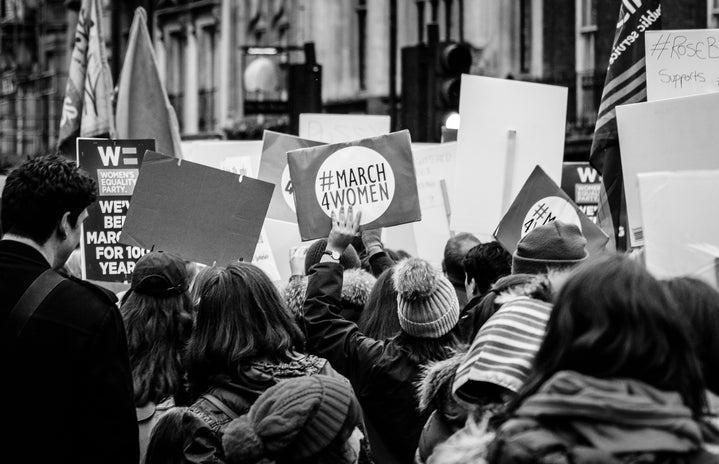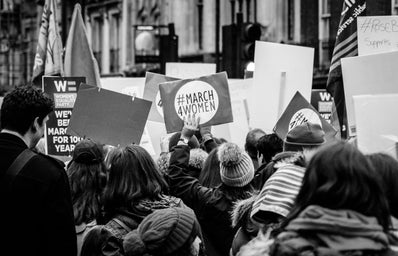Edited by: Nicole Descalsota and Alycia Lee
The age-old myth of youth apathy is being overturned by Gen Zs – an increasingly active and vocal demographic in the civic and political sphere. Many might see us as the ‘strawberry generation’ who are sluggish and spoiled, and lacking perseverance to deal with societal pressures. In reality, youths are now willing to put themselves at the forefront to fight for social injustice, showing an obvious shift in political culture, accelerated by the pandemic.
We have proven to be the generation that is ready to embrace and evoke change; and that it’s simply not the time to just ‘go with the flow’. Within our NTU community, there are also vocal activists seeking to create impact in their own ways. We spoke to several of them to find out how they embarked on the trying journey of activism, and how it has impacted their mental health.
While we usually perceive activists as passionate and outspoken, many of them were not this vocal in the beginning. Singapore’s regulated media, rigid education system, and lack of exposure to more alternative viewpoints make it difficult to create a conducive environment for people to speak their minds.
But that does not stop LGBTQ+ activist Elijah Tay, who uses they/them pronouns, from being dedicated to their cause.
Even when Elijah was arrested for their involvement in the protest against transphobia outside the Ministry of Education building earlier this year, their belief did not waver.
The second-year sociology student shared that they only started to put themself out there after being aware of their own sexuality. Having gone through outright discrimination in school, Elijah personally understands how detrimental such prejudice can be to one’s mental health – especially to youths who tend to be impressionable.
“I don’t want another youth to go through the same thing I’ve experienced,” Elijah explained.
Hence, they took the first step to read up about the LGBTQ+ community, and realised that social injustice is more prevalent than we think. They believe that it’s irresponsible to just ignore the problems that are staring straight at us, be it racism, sustainability woes, or mistreatment of migrant workers.
In hopes of creating a safe space for the diverse community and raise awareness to the general public, Elijah founded My Queer Story – a page with over 3000 following on Instagram. They have also been invited by organisations like New Naratif to speak at various events and podcasts, to garner attention and inspire action amongst youths.
Terese Teoh, a passionate activist especially in the field of sustainability, echoed similar sentiments: “I want to enjoy my youth too, and not worry about climate change or death penalty.”
The third-year Environmental Science and Public Policy student did not understand why no one else was feeling the same sort of urgency she felt, and spiraled through eco-depression and anxiety.
Reading about the climate crisis is dispiriting enough. But watching it unfold in front of her eyes – as trees outside her house were being killed off day by day to make way for housing – made her despair.
Reality has pressured activists to speak up about the gravity of the situation – especially because they fear no one else will.
“Speaking up was liberating for me – I did not have to pretend that everything was okay, when it actually isn’t,” said Terese.
She started her own dedicated blog to tell stories about the environmental space in Singapore; and often participates actively in public discussions on topics ranging from from climate change to the death penalty.
Stepping into university – where there is space for student advocacy – and meeting like-minded friends from different organisations have helped to reassure young activists like Elijah and Terese that they’re not alone. In fact, both students met through NTU Divest, a fossil fuel divestment student group.
Through such communities, hearing from different people on the ground can broaden one’s mind, Terese said.
Nonetheless, there are definitely times where activists feel burnt out too. In fact, they’re probably always feeling burnt out, Elijah added.
“But I’m young and still have the energy in me to get things done, so I’ll just keep on going.”
And underneath all that ‘glamour’ that comes with the attention garnered as an activist, is a lot of self-doubt and conflict.
“Am I really making a difference?” Terese often finds herself reflecting on the impact of her advocacy, which adds to the mental stress that she goes through. “Nobody will actually understand how you really feel.”
Sometimes, advocacy can even stress those around you. When Elijah’s parents had to bail them out for being arrested at the MOE protest, it was obvious that their parents were concerned. Fortunately, their parents remain supportive of their activism work, so long as they do not cross legal lines in the future.
But what keeps Elijah going – apart from the urgency of the situation – is the belief that they’re inspiring people around them.
“There are random strangers who come up to me to share that the things I’ve done have been helpful, and that’s really heartwarming,” Elijah said.
These student activists continue to fight for the causes that they believe in and use their voice to inspire more people. Terese has been featured on the international stage, when she spoke about climate grief and the environmental activism scene in Singapore at a side event at COP26. Similarly, aside from their participation in collective action, Elijah is a prominent activist with a significant following online, and continues to lead meaningful conversations with other youths.
“While it’s hard to expect everyone to be vocal, do your best to learn about different perspectives! Have conversations, unlearn and relearn, engage in mutual aid,” Elijah added.
As students whose priorities are to study and graduate, Elijah admits that speaking about controversial topics may be risky – especially for those who are on scholarships. But just educating yourself and influencing others around us can make a big difference in the activism scene.
“In any capacity you can, take the first step to enact effective change – be it reading up online, engaging in mutual aid, or just simply educating those around you!”
As youths, our time to act is now.


